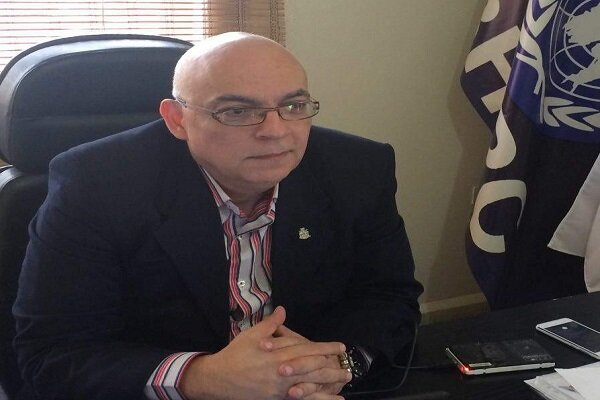Harassing Iranian plane proves U.S. doesn't intend to respect intl. covenants

Referring to harassment of Iranian plane over Syria's sky by American fighters, the Lebanese lawyer Haitham Abu Said says this move carries a message to the international community that the U.S. is going not to respect international covenants.
The adventurous move resulted in the injury of several passengers.
It was not the first provocative measure by the U.S. administration to escalate tensions against Iran in West Asia.
Tensions between Iran and the U.S. entered a new stage after Donald Trump abandoned a multi-power agreement with Iran over Tehran's nuclear program.
Iran has repeatedly warned the American administration against provocative actions against its interests in the region.
In this regard, Haitham Abu Said, a West Asia commissioner for human rights, tells the Tehran Times that the agreement about respecting the safety and security of passenger aircraft includes 149 articles in addition to an attachment of thirteen clauses.
"It also talks about military disputes away from everything related to the civil issues in its various forms," Abu Said says. "Therefore, it is considered one of the most important agreements that receive the United Nations' attention, especially when there are conflicts between two or more countries, as this agreement is binding for all members of the United Nations."
Responding to a question about American warplanes' dangerous move to intercept a passenger plane in the sky of another country, the Lebanese lawyer described what the American fighters did against the Iranian passenger plane as an illegal act and a flagrant breach of the Geneva Convention, air piracy and a violation of the airspace of another country.
"This violation committed by the Americans is considered a message to the international community that the U.S. is going not to respect international covenants," the Lebanese legal expert warns.
Pointing to Washington's intransigence in continuing such adventures unless the UN General Assembly takes a harsh decision against it, the lawyer said it is needed to submit a complaint to the UN Security Council and take the issue to international competence courts.
In this context, Iran has said that it will study multiple options to respond to harassment of its aircraft.
Iran's Foreign Ministry sent a protest note to the Swiss Embassy, which represents America's interests in Iran. The same note was also delivered to UN Secretary-General António Guterres by Iran's ambassador to the United Nations, Majid Takht-e Ravanchi.
Abu Said, nevertheless, thinks that Iran's next step is not predictable.
"Of course, we cannot speak on behalf of Iran and what it might do at the military level. But in addition to the international legal procedures that we mentioned above, Tehran may take harsh military action, and Washington must be prepared for that."
According to the Lebanese lawyer, if Iran retaliates against the U.S., this would be a correct move that would prevent a regional confrontation.
Asked about the trick that Israeli fighters used to deceive the Syrian air defenses in downing a Russian plane in Syrian September 2018, Abu Said says, "It is in contravention of the International Conference on Air Law, held in Beijing on August 30 to September 10, 2010, which is an agreement to prevent illegal acts related to international civil aviation."
Noteworthy is that the conference was held under the auspices of the International Civil Aviation Organization. Representatives from more than 80 states adopted two international air law instruments for the suppression of unlawful acts relating to civil aviation. The two instruments were the Convention on the Suppression of Unlawful Acts Relating to International Civil Aviation and the Protocol Supplementary to the Convention for the Suppression of Unlawful Seizure of Aircraft.
"In short, what the United States has done against the Iranian plane and what the Israeli entity previously did in tricking Syrian air defense to down a Russian plane by mistake is contrary to the ICAO law," he concludes.
Abu Said calls on Iran to use all legal mechanisms and to take all international measures to protect its civilian aircraft from the attacks and harassments by America over Syria's airspace.
By Mohammad Mazhari

